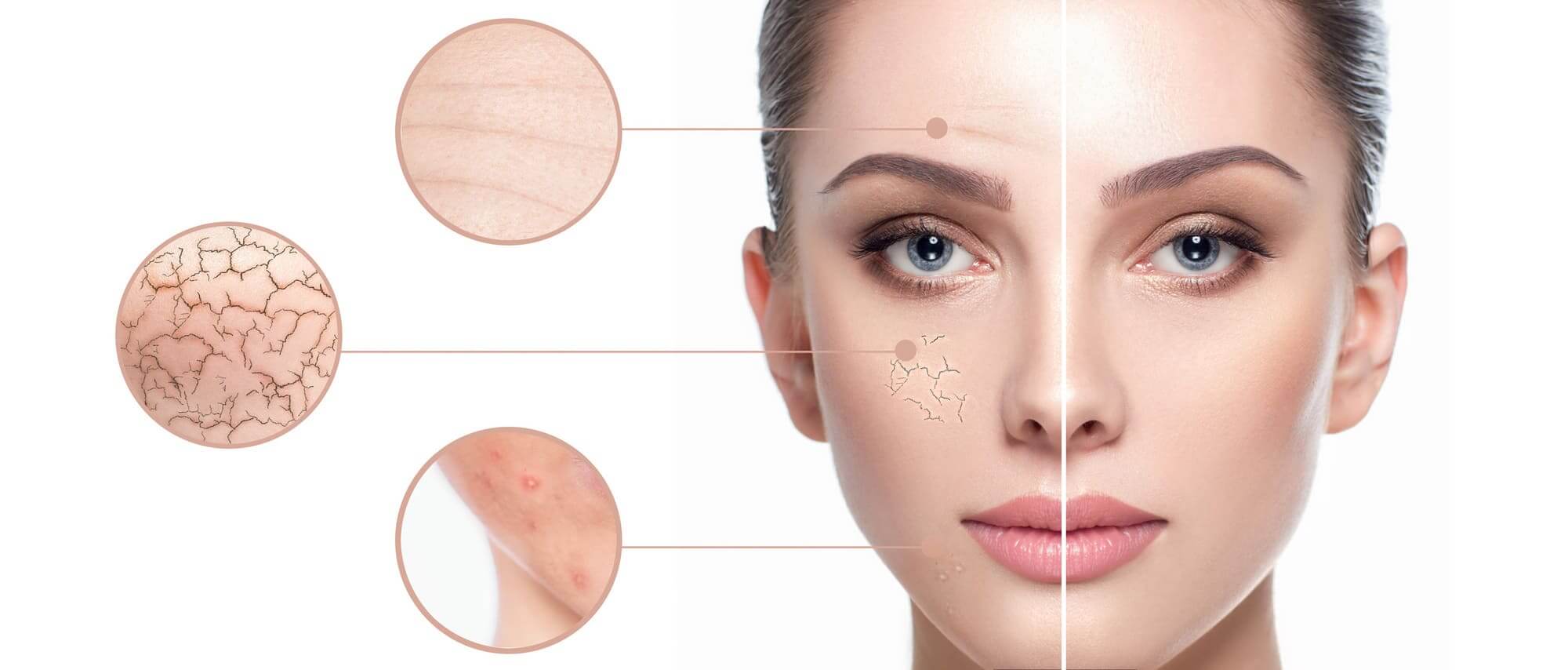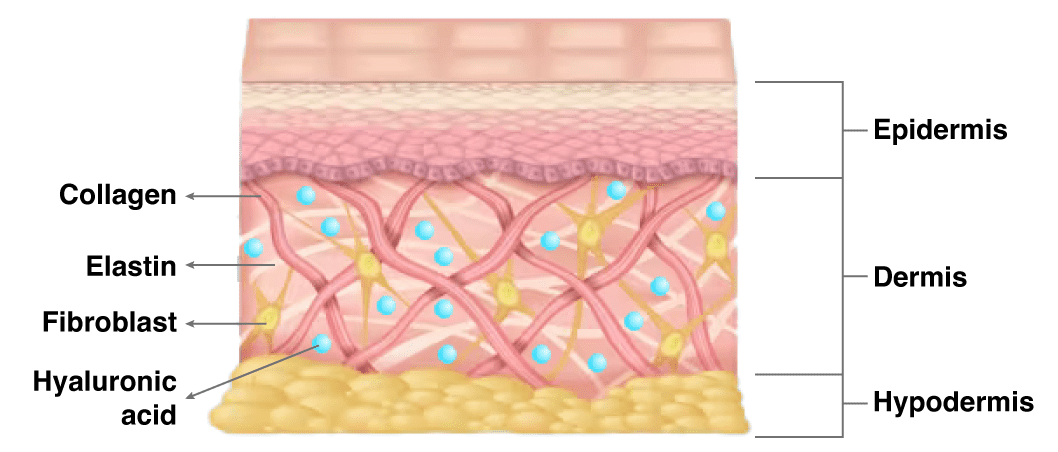We all know that collagen is a beneficial ingredient for beautiful skin whether orally, topically, or as a tissue filler, but why? We try to explain why the collagen protein can become your main ally for an elastic and moisturized skin.

What is skin, and what is the role of collagen in it?
The skin is the largest organ in the body, constituting 6% of body weight, much more than liver or brain. Since the skin is the outermost layer of the body, it acts as the first line of defense against a multitude of external pathogens and environmental challenges. In addition to its function as immunological barrier, the skin also regulates water loss and body temperature. Also, the skin is a highly irrigated organ, comprising about 30% of the blood that circulates through the body, and is a highly innervated organ, comprising about 4 m of nerves that provide sensory information to the brain.
Thus, due to its importance in health and in beauty standards, keeping the skin in good condition and combating its aging is a fundamental task that needs to be approached from different angles.
The skin consists of three layers:
- The top layer is the epidermis, a thin layer formed by keratin, a fibrous protein that also forms hair and nails. Epidermis prevents excessive water loss and provides a barrier from UV radiation through the production of melanin, a natural brown pigment.
- The second layer, the thickest one, is the dermis. It is mainly composed of a network of collagen fibers, formed in association with hyaluronic acid and elastin, which support skin cells. Like the springs of a mattress, the dermis gives the skin its mechanical properties, maintaining its thickness, shape, elasticity (ability to recover its shape after deformation) and flexibility (ability to deform without breaking).
- The deepest layer of the skin is the hypodermis or subcutaneous layer, which consists of connective tissue and fat.

Why is collagen key in skin aging?
Both endogenous and exogenous factors cause skin aging. Therefore, there are two types of dermal aging:
- Extrinsic, which is caused by smoking, environmental pollution, alcohol, stress, lack of sleep, chronic sun exposure and malnutrition.
- Intrinsic, that is caused by increasing age.
These factors cause profound changes in skin collagen, since it is the main structural component of the skin, comprising over 80% of its dry weight. Thus, with age, collagen content decreases, especially in women, in whom collagen synthesis decreases by up to 30% during the first 4 years of menopause. Collagen network becomes less dense and more fragmented, presenting shorter and more disorganized fibers, and accumulating degraded collagen fragments. As a result, skin losses progressively its thickness, tone, firmness and mechanical properties, showing aging signs as wrinkles, flaccidity, microrelief imperfections and dryness.
Other consequences of skin aging are a higher susceptibility to mechanical injuries and wounds, as well as a decrease in the immune function of the skin barrier.

Studies show that the age-dependent reduction in collagen synthesis can be reversed by the oral intake of hydrolyzed collagen, improving the signs and consequences of skin aging.
Hydrolyzed collagen mechanism of action to counteract skin aging
Strategies to improve skin health and maintain a youthful skin appearance include topical creams, injectable fillers and collagen supplements.
Topical creams contain collagen as one of the ingredients, but they have limited ability to penetrate the skin, which can reduce their effectiveness in improving skin hydration and firmness.
Injectable fillers such as hyaluronic acid fillers stimulate collagen production and provide immediate results by plumping the skin. However, they can be expensive and come with the risk of adverse events such as bruising, swelling and infection.
On the other hand, collagen supplements containing hydrolyzed collagen are safer and more cost-effective compared to other strategies. Furthermore, they have the advantage of being taken orally, making them easy to incorporate into daily routines.
Studies show that hydrolyzed collagen is metabolized into collagen peptides and free amino acids in the gastrointestinal tract, which cross the intestinal barrier, enter the bloodstream and reach the skin, where they accumulate and exert a double action:
- Nutritional action: free amino acids provide the building blocks for synthesizing collagen and elastin fibers.
- Functional action: collagen biopeptides stimulate fibroblasts (dermis-forming cells) and induce them to produce new collagen, elastin and hyaluronic acid.
Both actions work synergistically, improving skin hydration, elasticity, firmness, texture and density, and reducing facial wrinkles.
Besides esthetic effects, studies show that hydrolyzed collagen helps to strengthen the skin barrier function and to speed up wound healing.
Colpropur®: a high-quality hydrolyzed collagen for health and beauty routine from within
Colpropur® SKIN CARE is a natural supplement based on high-quality hydrolyzed collagen, COLPROPUR D®, complemented with specific vitamins, minerals and other bioactive agents that enhance hydrolyzed collagen skin repair effects.
It is a valuable ally for the daily beauty routine, since it provides a specific formula of ingredients that nourish the skin from within, improving its health, properties and appearance.
